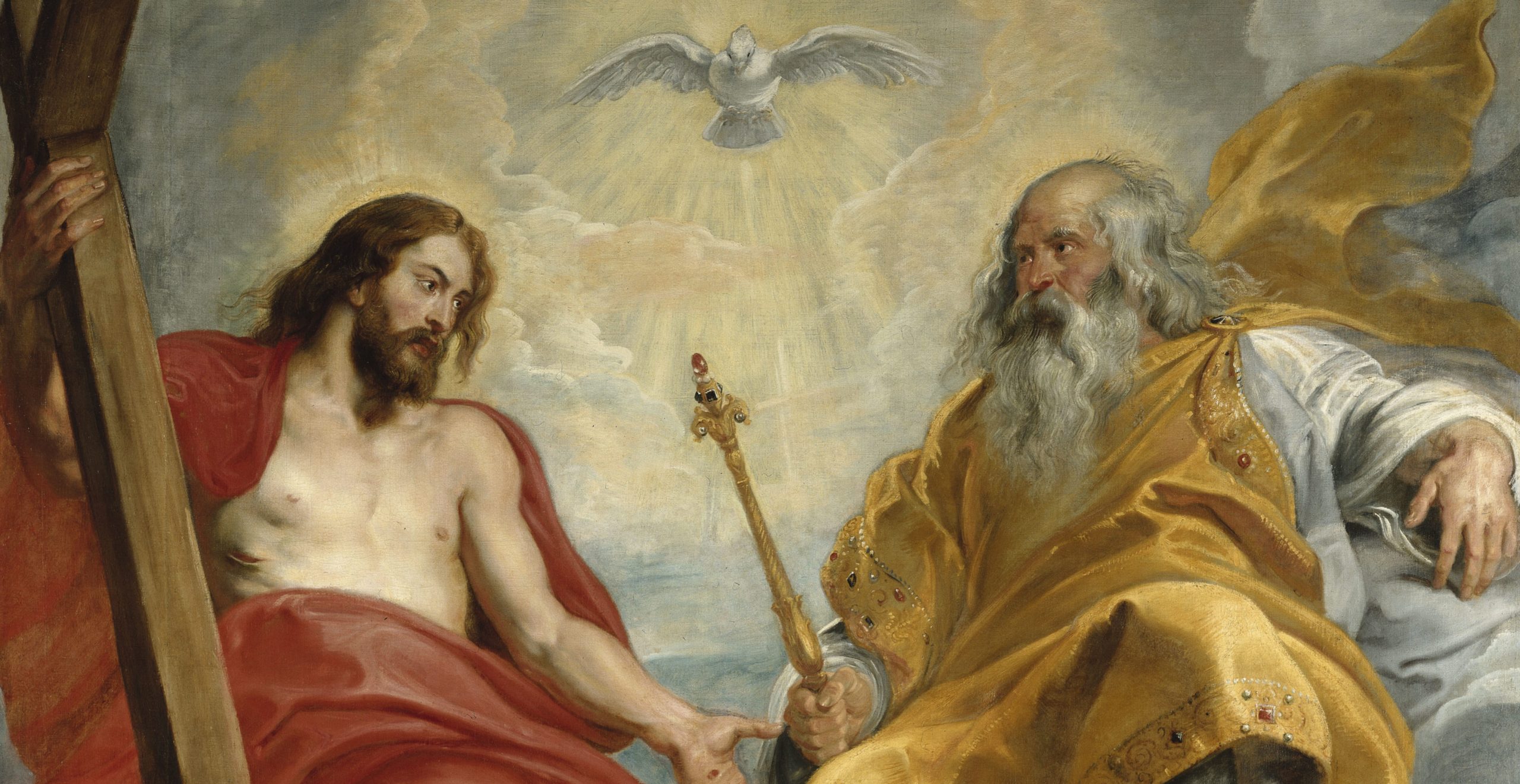
The concept of God has captivated human minds for centuries, inspiring awe, devotion, and countless theological debates. As we delve into the realm of spirituality and religious beliefs, one question that often arises is: Does God have parents? In this article, we will explore the enigmatic nature of divine origins, examining various perspectives from different religious traditions and philosophical standpoints.
>>> See more: Title Does Burberry Run Small? A Comprehensive Guide to Sizing and Fit
The Nature of God

Before delving into the notion of God having parents, it is essential to understand the fundamental characteristics ascribed to the divine being across different belief systems. While interpretations may vary, most religions describe God as an eternal, omnipotent, and transcendent entity. The concept of a supreme being existing beyond the confines of time and space creates a paradox when discussing parental lineage.
What Do Religious Traditions Say?

1. Abrahamic Religions – Judaism, Christianity, and Islam
In Abrahamic traditions, such as Judaism, Christianity, and Islam, God is perceived as the ultimate creator and sustainer of the universe. These faiths assert that God is uncreated and without parents, as the divine exists outside the bounds of human genealogy. In these religious frameworks, God’s existence is considered self-sufficient and independent of any earthly lineage.
2. Hinduism and Polytheistic Beliefs
Hinduism, with its rich tapestry of deities and diverse mythologies, presents a different perspective on divine parentage. In Hindu mythology, gods and goddesses are often portrayed as having parents and engaging in familial relationships. For instance, Lord Shiva is depicted as the father of Lord Ganesha and Goddess Parvati. However, it is important to note that Hindu philosophy also acknowledges the existence of a formless, supreme reality known as Brahman, which transcends human concepts of lineage.
3. Other Philosophical and Spiritual Perspectives
Outside the realm of organized religions, various philosophical and spiritual traditions offer unique insights into the origin of God. For instance, some philosophical schools propose that God is an abstract concept representing the ultimate source of all existence. Others see divinity as an immanent force permeating every aspect of creation. These perspectives often transcend the notion of parental lineage, focusing more on understanding the nature of the divine essence itself.
The Paradox of Parental Lineage
While the concept of God having parents presents a fascinating subject of inquiry, it also confronts us with an inherent paradox. If God is considered the creator of everything, including time, space, and life, the idea of God having parents becomes incongruous. How can a supreme being, who is believed to be eternal and uncreated, have parents within the confines of our human understanding?
>>> See more: What Does Cuckold Mean? Unveiling the Intriguing World of Cuckolding
Pros and Cons of Exploring Divine Parentage
Pros:
- Deepening Understanding: Investigating the question of God’s parentage can lead to a deeper understanding of religious beliefs and philosophies.
- Cultivating Critical Thinking: Engaging in thought-provoking discussions about divine origins nurtures critical thinking skills and encourages intellectual curiosity.
- Promoting Dialogue: Exploring diverse perspectives on divine parentage fosters interfaith dialogue and mutual respect among different religious communities.
Cons:
- Limits of Human Comprehension: Our limited cognitive abilities may prevent us from fully comprehending the nature of the divine, leading to speculation rather than concrete answers.
- Potential for Discord: Discussions about divine parentage can sometimes spark contentious debates and conflicts among individuals holding differing beliefs.
- Distraction from Spiritual Growth: Focusing excessively on divine genealogy may divert attention from personal spiritual growth and the pursuit of virtues like compassion, love, and justice.
Alternatives and Alternative Perspectives
While the question of God’s parentage may not have a definitive answer, alternative perspectives and related inquiries offer further avenues for exploration. Here are a few alternative considerations to ponder:
- Eternal Existence: Instead of contemplating parental lineage, one could explore the concept of God’s eternal existence outside the confines of time and space.
- Divine Manifestations: Investigating how different religious traditions conceptualize divine manifestations can shed light on diverse perspectives on the nature of God.
- Metaphorical Language: Reflecting on whether discussions of parental lineage are meant to be taken literally or as metaphorical expressions can lead to new insights.
Step-by-Step Guide: How to Navigate Spiritual Ambiguities
When faced with spiritual ambiguities like the question of God’s parentage, it is crucial to approach the topic with an open mind and a spirit of inquiry. Here’s a step-by-step guide to navigating these complexities:
- Research and Study: Dive into religious texts, philosophical treatises, and scholarly works to gain a comprehensive understanding of different viewpoints.
- Engage in Dialogue: Participate ininterfaith dialogue and discussions with individuals from diverse religious backgrounds. This will help broaden your perspective and enhance your understanding of various beliefs.
- Seek Guidance: Consult spiritual leaders, theologians, or scholars who specialize in the specific religious tradition you are exploring. They can provide valuable insights and interpretations.
- Reflect and Meditate: Take time for personal reflection and meditation to connect with your inner self and explore your own beliefs. This introspective approach can deepen your understanding of complex spiritual concepts.
- Embrace the Mystery: Recognize that some aspects of spirituality and theology may remain mysterious and beyond human comprehension. Embracing the mystery can be a humbling and enriching experience.
>>> See more: Does Ammonia Kill Mold? Unveiling the Truth and Exploring Effective Alternatives
Comparing Different Religious Perspectives
To gain a broader understanding of how different religious traditions approach the question of divine parentage, let’s compare some key perspectives:
| Religion/Philosophy | Perspective on God’s Parentage |
|---|---|
| Judaism | God is considered uncreated and without parents. |
| Christianity | God is believed to be eternal and uncreated, having no parental lineage. |
| Islam | God is deemed self-sufficient and independent, existing without parents. |
| Hinduism | While gods and goddesses have familial relationships, the supreme reality (Brahman) transcends human concepts of parental lineage. |
| Philosophical Schools | Some propose that God is an abstract concept representing the ultimate source of all existence, while others see divinity as an immanent force beyond parental lineage. |
Examining these diverse perspectives highlights the intricate tapestry of human beliefs and the multifaceted nature of theology.
Tips for Exploring the Divine
When embarking on a journey to explore the mysteries of the divine, consider the following tips to make your exploration more meaningful and rewarding:
- Approach with an Open Mind: Be receptive to different viewpoints and willing to challenge your own preconceptions.
- Respect Diverse Beliefs: Engage in discussions and debates with respect, empathy, and a genuine desire for understanding.
- Study Comparative Religion: Familiarize yourself with the tenets, practices, and sacred texts of various religions to gain a broader perspective.
- Reflect on Personal Experience: Explore how your own spiritual experiences shape your understanding of the divine.
- Embrace the Journey: Remember that the exploration of the divine is an ongoing process, and embracing the journey itself can be transformative.
The Quest for Understanding
The question of whether God has parents delves into the profound mysteries of life, divinity, and our place in the universe. While religious traditions may offer different answers, exploring these inquiries fosters intellectual growth, interfaith dialogue, and personal reflection. By approaching the subject with an open mind and a spirit of curiosity, we embark on a quest for understanding that enriches our lives and deepens our connection to the divine.
>>> See more: The Enigmatic Wizard in Olden Times Unveiling Mysteries and Legends
FAQs After The Conclusion
- FAQ 1: Can we ever truly know the origin of God?
- The origin of God is a subject of great mystery and speculation. Our limited human capacity may prevent us from fully comprehending the divine origins. Instead, people find meaning through faith and philosophical contemplation.
- FAQ 2: Why does the question of God’s parentage vary across different religions?
- Different religious traditions have distinct beliefs and interpretations about the nature of God. These variations arise from cultural, historical, and theological factors within each tradition.
- FAQ 3: Is it necessary to believe in a specific religion’s understanding of God’s parentage?
- Beliefs about God’s parentage are matters of faith and personal conviction. Individuals have the freedom to embrace the teachings of a particular religion or develop their own concepts based on their spiritual journeys.
- FAQ 4: Can the concept of God’s parentage be symbolic rather than literal?
- Yes, in many religious and philosophical traditions, discussions on God’s parentage are often understood symbolically or metaphorically, representing deeper truths about the divine nature rather than literal genealogy.
- FAQ 5: How does exploring the mysteries of the divine contribute to personal growth?
- Exploring the mysteries of the divine encourages critical thinking, self-reflection, and empathy. It can deepen one’s understanding of different perspectives, foster spiritual growth, and enhance one’s connection to humanity and the universe.
>>> See more: How to Pronounce “Once” and Use It in Different Contexts

Leave a Reply